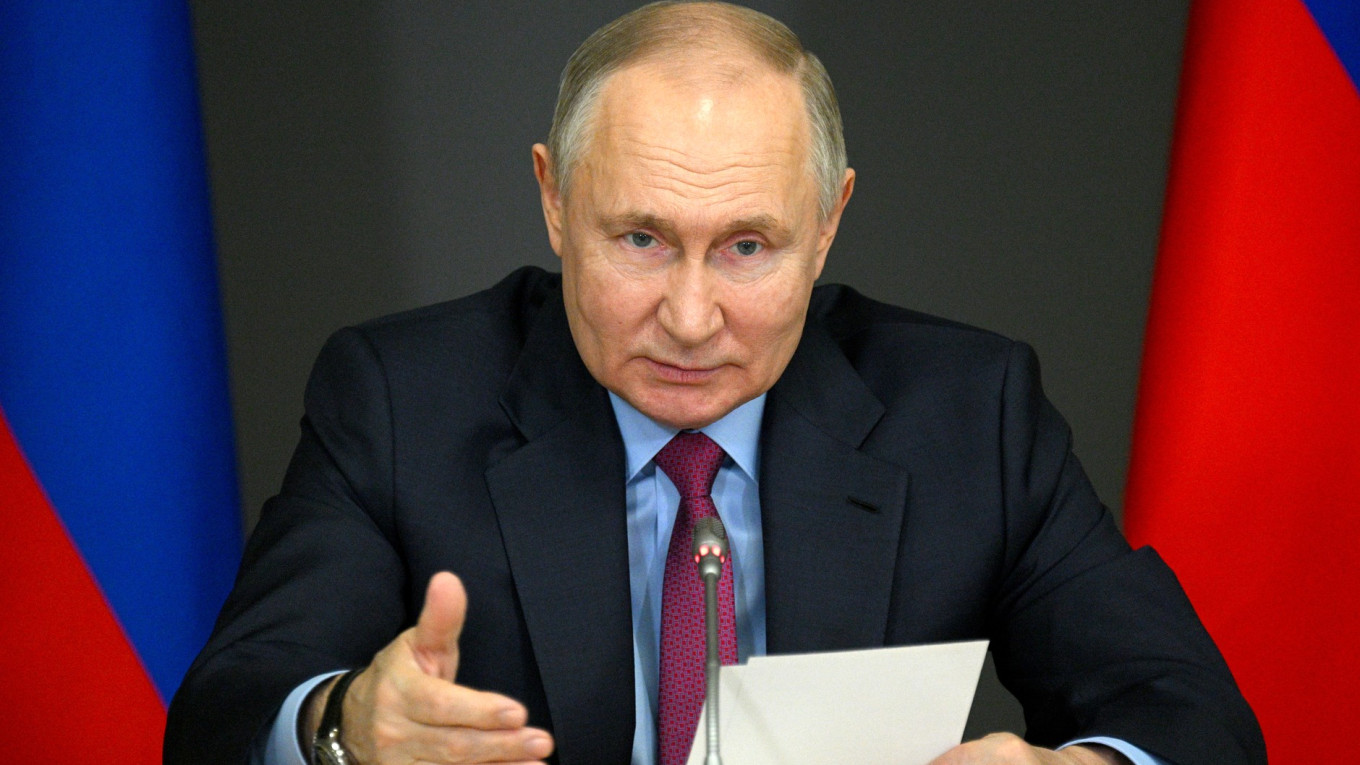As Russia’s military campaign in Ukraine enters its third year, western leaders have maintained their solidarity with Ukraine while the Kremlin celebrates capture of Avidvika city.
President Vladimir Putin on Friday hailed Russia’s “heroes” fighting in Ukraine.
“You are our true national heroes,” Putin said in a video message addressed to troops and veterans.
“We know that it is hard for you, and we will do everything possible for you to fulfill the tasks ahead of you,” Putin said, adding that Moscow’s weapons production has “multiplied.”
Meanwhile, Ukraine’s military intelligence and Air Force reported they had brought down another high value Beriev A-50 command aircraft over the Azov Sea on Friday in a “combined operation.”
Meanwhile, U.S. President Joe Biden on Friday announced sanctions against Russia on over 500 targets to mark the second anniversary of its invasion of Ukraine, vowing sustained pressure to stop President Vladimir Putin’s “war machine.”
The sanctions, described as the largest single tranche since the start of the war, also seek to impose a cost for the death last week in a Siberian prison of Putin’s most vocal critic, Alexei Navalny — with measures taken against three officials.
Despite U.S.-led pressure, the Russian economy grew by more than 3% last year and is expected to grow again this year, a rate better than some Western nations backing Ukraine.
Russia has adapted and turned to trade with non-Western partners, especially China.
Who is winning?
Two years of the war has left Ukraine weakened by the blocking of U.S. aid, its failed counter-offensive and worsening ammunition shortages.
President Volodymyr Zelensky has acknowledged an “extremely difficult” situation on the front.
Two years of fighting a bigger and richer army has taken its toll on Ukraine’s stretched forces.
“It’s extremely hard,” Ukrainian infantryman Oleksiy told journalists in eastern Ukraine, caked in mud after returning from the trenches.
“We don’t have weapons like they have. You know, they have factories for production, and us? We beg for weapons. That’s the way it is,” the 32-year-old said.
Moscow is seeking to press its advantage and drive further into Ukraine following the capture of Avdiivka.
Kyiv warned Friday that Russia is intensifying attacks around the new “hot spot” of Maryinka, a town to the west of the Moscow-controlled stronghold of Donetsk city.
The Kremlin has repeatedly framed the almost two-year conflict as a battle for Russia’s survival, a matter of “life and death” for Russia.
“Everything that is happening on the Ukraine front: for them it is an improvement of their tactical position, but for us it is our fate, it is a matter of life and death,” President Vladimir Putin said in remarks aired Sunday.
“I think it is still important for us ourselves, and even more so for our listeners and viewers abroad, to understand our way of thinking,” Putin said.
In that interview, Putin talked at length about Russian history and continuously questioned Ukraine’s statehood, drawing ire in both Kyiv and the West.
“For the Western listener, the viewer, it was not easy. Even more so for Americans,” Putin said when asked about his long historical musings in the Carlson interview.
“The history of the United States is 300-odd years, and I started in 862. So I think it was not easy for American audiences to understand,” he said.




















